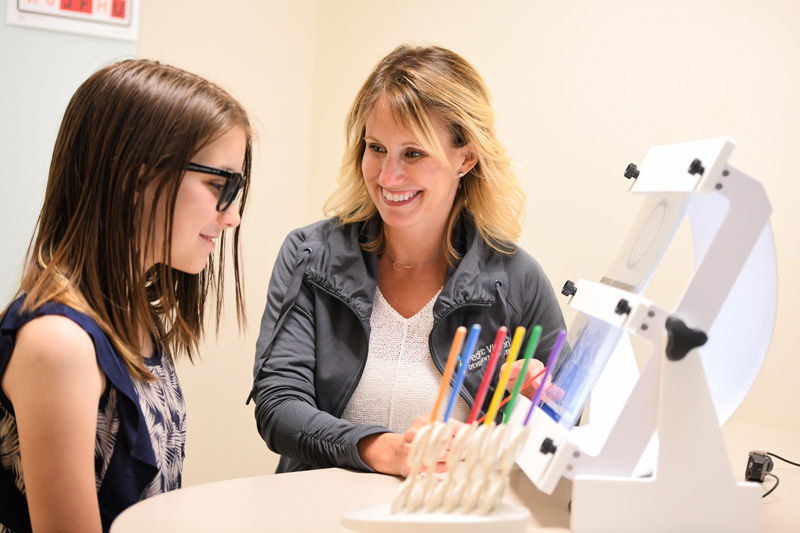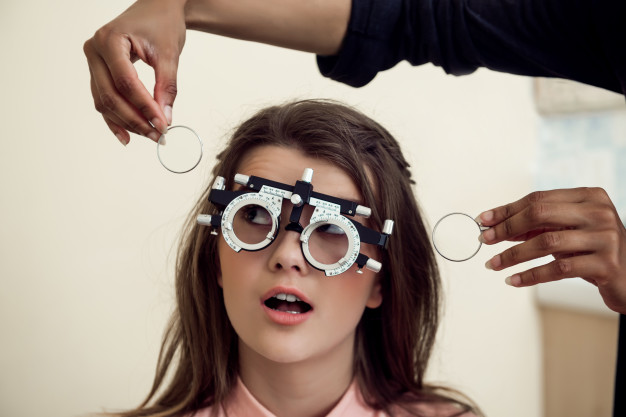arly detection of children’s vision problems is essential to make sure your kids have the visual skills they need to do well in school, sports and other activities.
Vision is arguably the most important of the five senses. It plays a crucial role throughout childhood and beyond. In fact, experts say 80 percent of what children learn in school is presented visually. From infancy on, there are important milestones in your child’s vision development. For example, during the first several months of life, a baby can focus only on objects up close. Those objects will be seen in high contrast colors only, such as black, white and red.
But by 6 months of age, your child’s visual acuity should be much sharper, with more accurate colour vision and better eye movement and hand-eye coordination skills. To make sure your child’s eyes are functioning properly and working together as a team during the early formative years, schedule his or her first eye exam at 4 years of age, or earlier if any suspicions arise. Otherwise, a lifetime of poor vision in one or both eyes could occur.


Early eye exams also are important because children need the following basic skills related to good eyesight for learning:
Some parents are surprised to learn that preschool-age children do not need to know their letters in order to undergo certain eye tests, even when they are too young or too shy to verbalise.
A child who is unable to see print or view a blackboard can become easily frustrated, leading to poor academic performance. Some vision problems, such as lazy eye, are best treated if they are detected and corrected as early as possible while the child’s vision system is still developing.
Got a question?
Give us a call on 03 9398 1344
or send a quick message using this form:
Make an Appointment
Give us a call on 03 9398 1344
or use our online Booking Portal:
Book Online Now
Location

Eyecare Plus Altona / Vision Advantage
90 Railway St S, Altona VIC 3018
Hours
Mon – Fri: 9am – 5.30pm
Thursday night available by appointment
Saturday: 9am – 2pm
Vision Advantage has special qualifications and training to undertake a series of Behavioural Optometry tests to assess a childs visual performance and function then implement Vision Therapy to improve and correct these weaknesses.
Behavioural Optometry is a holistic combination of eyesight, eye coordination and positioning, and how the brain interprets, processes and acts on the information.
Vision Therapy is a customised and personalised program of eye and brain exercises designed to teach and strengthen a wide range of vital children’s (and adults) visual skills.

